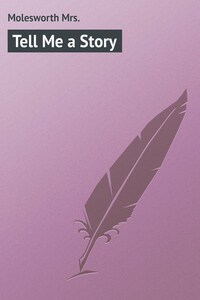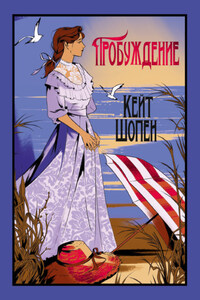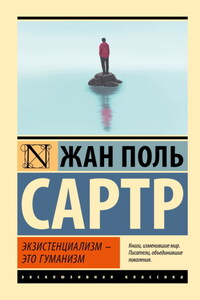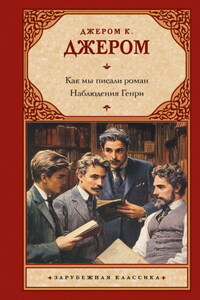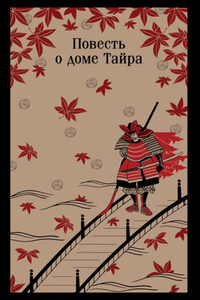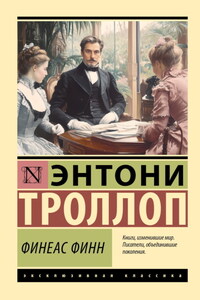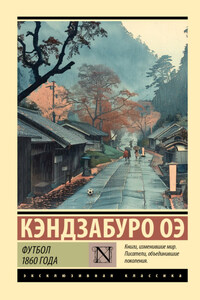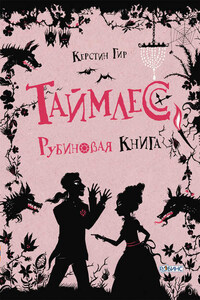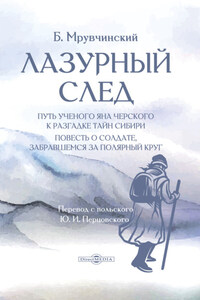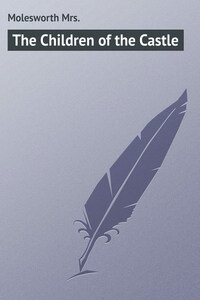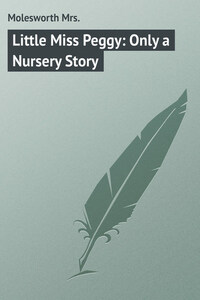The children sat round me in the gloaming. There were several of them; from Madge, dear Madge with her thick fair hair and soft kind grey eyes, down to pretty little Sybil – Gipsy, we called her for fun, – whom you would hardly have guessed, from her brown face and bright dark eyes, to be Madge’s “own cousin.” They were mostly girls, the big ones at least, which is what one would expect, for it is not often that big boys care much about sitting still, and even less about anything so sentimental as sitting still in the twilight doing nothing. There were two or three little boys however, nice round-faced little fellows, who had not yet begun to look down upon “girls,” and were very much honoured at being admitted to a good game of romps with Madge and her troop.
It was one of these – the rosiest and nicest of them all, little Ted – who pulled my dress and whispered, but loud enough for every one to hear, with his coaxingest voice – “Tell me a story, aunty.” And then it came all round in a regular buzz, in every voice, repeated again and again – “O aunty! do; dear, dear aunty, tell us a story.”
I had been knitting, but it had grown too dark even for that. I could not pretend to be “busy.” What could I say? I held up my hands in despair.
“O children! dear children!” I cried, “truly, truly, I don’t know what stories to tell. You are such dreadfully wise people now-a-days – you have long ago left behind you what I used to think wonderful stories – ‘Cinderella,’ and ‘Beauty and the Beast,’ and all the rest of them; and you have such piles of story-books that you are always reading, and many of them too written for you by the cleverest men and women living! What could I tell you that you would care to hear? Why, it will be the children telling stories to amuse the papas and mammas, and aunties next, like the ‘glorious revolution’ in ‘Liliput Levée!’ No, no, your poor old aunty is not quite in her dotage yet. She knows better than to try to amuse you clever people with her stupid old hum-drum stories.”
I did not mean to hurt the poor dear little things – I did not, truly – I spoke a little in earnest, but more in jest, as I shook my head and looked round the circle. But to my surprise they took it all for earnest, and the tears even gathered in two or three pairs of eyes.
“Aunty, you know we don’t think so,” began Madge, gentle Madge always, reproachfully.
And “It’s too bad of you, aunty, too bad,” burst out plain-speaking Dolly. And worst of all, Ted clambered manfully up on to my knees, and proceeded to shake me vigorously. “Naughty aunty,” he said, “naughty, naughty aunty. Ted will shake you, and shake you, to make you good.”
What could I do but cry for mercy? and promise anything and everything, fifty stories on the spot, if only they would forgive me?
“But, truly children,” I said again, when the hubbub had subsided a little, “I am afraid I do not know any stories you would care for.”
“We should care for anything you tell us,” they replied, “about when you were a little girl, or anything.”
I considered a little. “I might tell you something of that kind,” I said, “and perhaps, by another evening, I might think over about some other people’s ‘long agos’ – your grandmother’s, for instance. Would that please you?”
Great applause.
“And another thing,” I continued, “if I try to rub up some old stories for you, don’t you think you might help? You, Madge, dear, for instance, you are older than the others – couldn’t you tell them something of your own childish life even?”
I was almost sorry I had suggested it; into Madge’s face there came a look I had seen there before, and the colour deepened in her cheeks. But she answered quite happily.
“Yes, aunty, perhaps they would like to hear about – you know who I mean, and my other aunties, who are mammas now as well; if you wouldn’t mind writing it down – I don’t think I could tell it straight off.”
“Very well,” I said, “I’ll remember. And if, possibly, some not real stories come into my head – there’s no saying what I can do till I try,” for I felt myself now getting into the spirit of it, – “you won’t object, I suppose, to a fairy tale, or an adventure, for instance – just by way of a change you know?”
General clapping of hands.
“Well then,” I said, “to begin with, I’ll tell you a story which is – no, I won’t tell you what it is, real or not; you shall find out for yourselves.”
And in this way it came to pass, you see, that there was quite a succession of “blind man’s holidays,” on which occasions poor aunty was always expected to have a story forthcoming.
